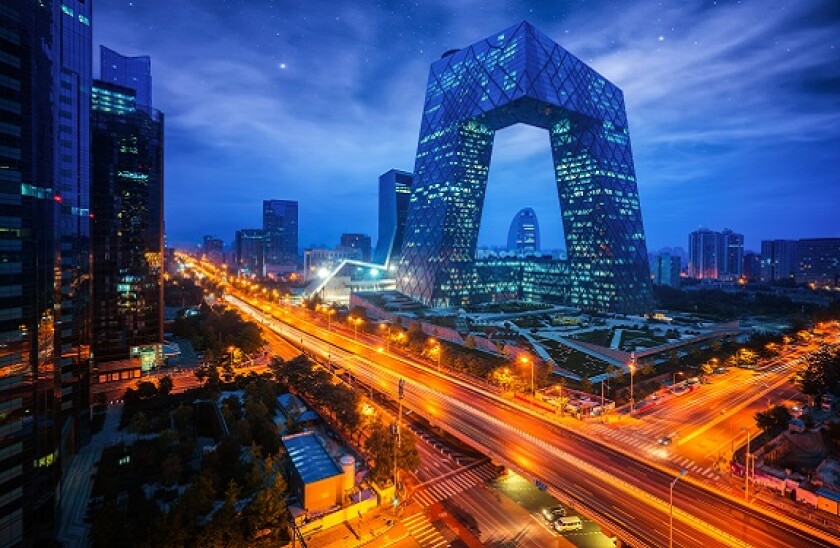The Asian bond market was shaken this month after China Huarong Asset Management Co failed to publish its full year 2020 results, while offering little clarification about the reasons for the delay.
The result was a drop in new bond issuance from China, as well as a repricing of Huarong's secondary curve. On April 15, Huarong's dollar notes were trading with cash prices in the 60s area, while its perpetual bonds dipped into the 50s region.
The price adjustment reflected valid concerns about Huarong. The state-owned bad debt manager shared limited information about its financial situation soon after the results delay, while the structure of its dollar bonds offered little comfort to investors. Most of Huarong's dollar bonds have a keepwell structure, without a direct guarantee. Keepwells have fallen out of favour as a type of credit protection since a Chinese court determined last year that Peking University Founder Group's keepwell meant next to nothing for its bondholders.
It also didn’t help that Huarong's international transactions were structured such that a default of onshore bonds would trigger a default offshore, but the opposite is not the case.
As some analysts told GlobalCapital Asia recently, the value of Huarong's bonds boils down to the support it has from its ultimate owner — the Chinese government. But without an explicit guarantee, can investors rely on the government to back up Huarong and similar bond issuers?
For a long time, the answer seemed to be yes. China has little incentive to let big, state-owned names like Huarong fail — until it does.
The risk of implicit government backing is that the backer at any time can choose not to support a credit, because it cannot or because it does not want to, and it wishes to make an example of a company for poor behaviour.
Huarong, for instance, has been under pressure to cut its under-performing units and focus on its core business. Lai Xiaomin, the company's ex-chairman who was responsible for much of its business expansion over the last few years, was convicted and sentenced to death earlier this year for taking bribes, as well as for corruption and bigamy.
China did quell investor fears around Huarong eventually, stating last week that it was business as usual at the asset manager. In response, the firm’s dollar bonds climbed back up to cash prices in the 80s area on Monday.
But the incident should not be quickly brushed aside. Instead, it is likely a harbinger of more bad news to come from China’s state-owned companies.
International bond investors have long given these companies the benefit of the doubt, allowing even the loosest association with government to count for something when it came to pricing a dollar bond.
It's time for that attitude to change. Investors should demand a premium for companies that cannot prove explicit support for their transactions from their state-owned parents. The fair price of notes should be reassessed to include compensation for opaque structures and unclear recourse in the potential cases of default. China's high yield companies pay investors generous yields, sometimes well above 10%, to accommodate for the associated risks. Investment grade rated state-linked names, on the other hand, not only pay nothing close to those levels, they also offer little by way of premium on their offerings.
This means a long overdue repricing of Chinese state-owned dollar bonds is needed to reflect their true risks.
Rating agencies generally outline the ways in which a company is important to the government and may or may not be able to count on support, should it get into trouble. But investors cannot take that alone at face value, as the level of government support is not usually reflected in the end rating itself. It is up to investors to push further and assess what price will make up for the risks — and for the rating agencies to rethink how they rate such bonds.
Most state-linked credits will still hover in the investment grade space, but it is more important now than ever to differentiate between the different kinds of corporations — given the recent run of bad news that has also emerged among onshore bonds sold by SOEs.
As CreditSights noted on Monday, some of the government-linked property developers, such as Beijing Capital Land and China Jinmao, should be considered high yield on a standalone basis. Similarly, there is some differentiation between local government financing vehicle bonds depending on which province an LGFV comes from and what sector it operates in, but more could be done to price in the risk of some of these companies. Most are, again, considered investment grade, but it is questionable if they all deserve such ratings.
Investors in China's dollar bond market have witnessed a number of red flags in the past year or so, but Huarong's saga should be the biggest awakening about how to price deals sold by state-owned borrowers.
Bond prices should reflect the value of a company, not its government ties. It’s time that DCM participants push back — or risk even greater damage to the market.

